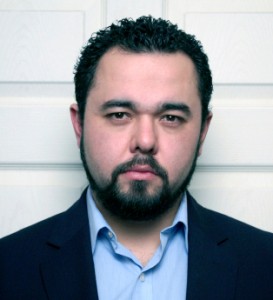
Recently we had the opportunity to Skype with Reynaldo Rojo-Mendoza, an accomplished researcher with a keen interest in political behavior and Latin America. A Ph.D. candidate at the University of Pittsburgh, Reynaldo is currently performing field research in Mexico on a Drugs, Security and Democracy (DSD) Fellowship. The DSD fellowship provides 3-12 months of support for research performed in Latin America or the Caribbean. Reynaldo’s dissertation is focused on drug violence in Mexico and its broader implications for democracy, which made the DSD Fellowship the ideal funding opportunity for his research. Reynaldo sat down with us to provide tips and advice for applying to the fellowship.
1. Why did you apply for the Drugs, Security and Democracy Fellowship and what did you propose to do?
I applied to the Drugs, Security and Democracy Fellowship because its theme squared perfectly with my dissertation topic and, more importantly, because it allowed me to propose a plan to conduct international fieldwork for up to 12 months. This unique combination is what made me set my sights on this particular fellowship.
My dissertation looks at the micro-level impact of criminal violence in Mexico, particularly at why and how violent victimization and trauma affects people’s beliefs, preferences, and actions. In the proposal, I laid out a research plan that included laboratory and field experiments in different research sites in Mexico, as well as conducting semi-structured interviews with victims, social activists, and public officials.
2. What do you think made your application stand out?
What I think made my application stand out was the clarity and feasibility of the research proposal. In a nutshell, my proposal had a straightforward research question, a concise theory, clear hypotheses to be tested, a summary of expected outcomes, and a detailed methods section. Since I knew the committee was interdisciplinary, I was careful to avoid political science jargon and kept the literature review to a minimum. Furthermore, I kept the fieldwork plan within the bounds of what I thought was feasible. I identified and listed my contacts in the field, explained how I would gain access to interviewees, described the key questions I would ask, and discussed the challenges that could arise. In short, my research proposal showed the committee that I had thought about the necessary steps to answer my research question, that I could convey my ideas clearly in non-technical language, and that I was ready to take my project to the field.
3. What advice would you give others applying to fellowships to support dissertation research?
First, I would say that talking to your advisor(s) about applying to fellowships is of utmost importance. This should happen very early in the process. In addition to their comments, consider that you will likely ask your advisor(s) to write you a letter of support for the fellowship, so they need to be familiar with your project well in advance of the deadline.
Second, ask your grad student peers or professors that are unfamiliar with your research to read your proposal (or parts of it) so they can give you fresh comments and suggestions. If possible, share your proposal with a seminar or discussion group. This is a great exercise that allows you to anticipate what the fellowship committee may think of the proposal.
Finally, read the fellowship application judiciously and fulfill all of the requirements to the letter. This may sound pretty obvious, but I cannot stress enough how important this is given how easy it is to overlook the fine print when you have a deadline. If the fellowship asks you to describe previous work you have done on the topic or the policy implications of your research, do it. If you have page limit, respect it. If you are asked to give names of contacts in the field, provide them with a list. The last thing you want is to get “desk-rejected” because you failed to follow the instructions of the application.
Reynaldo is a Ph.D. candidate in the Department of Political Science at the University of Pittsburgh. His fields of study are comparative politics and mass political behavior, and he specializes in political psychology and experimental methods. His dissertation looks at the psychological and behavioral impact of crime-related violence in Mexico and discusses its broader implications for democracy. His other research focuses on assessing the impact of donor-sponsored civic education programs in developing democracies and on methods for program evaluation. Prior to his doctoral studies, Reynaldo worked as a researcher at the Institute for Regional Studies of the Californias at San Diego State University, collaborated on a project on human rights, rule of law, and judicial reform in Latin America for Emeritus Professor Brian Loveman, and served as deputy director of immigration enforcement in Baja California for Mexico’s Instituto Nacional de Migración. Reynaldo graduated with a M.A. in Latin American Studies from San Diego State University in 2008 and with a Bachelor of Laws from Universidad Anahuac (Mexico) in 2002.
© Victoria Johnson 2012, all rights reserved.